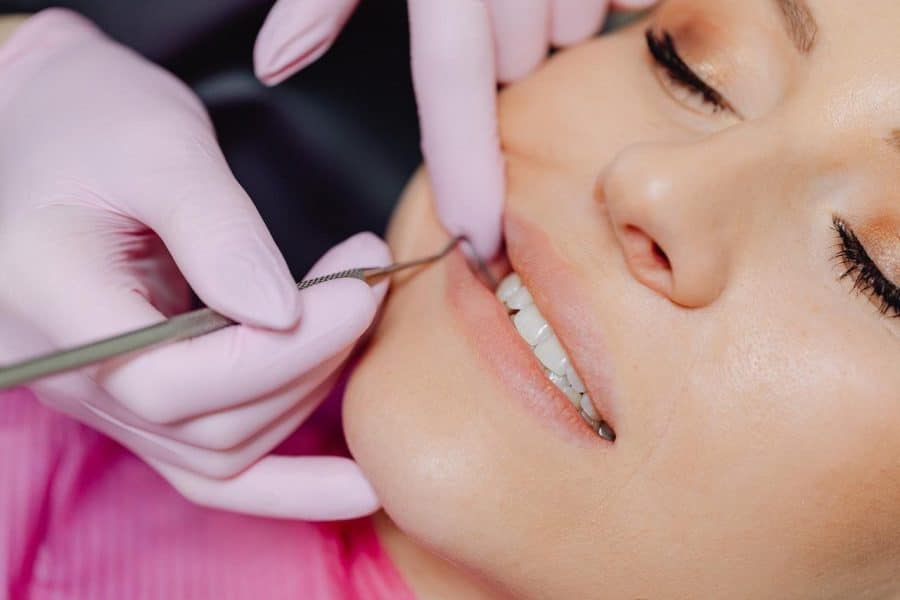An essential component of preventive dental care that should be addressed is professional teeth cleaning, which dental hygienists or dentists carry out. In this article, we will explore the ins and outs of Professional cleaning. By the end, we assure you that you will be more confident and understand the importance of professional cleaning and how and why it is different.
Understanding professional teeth cleaning
Regular brushing is surpassed by professional teeth cleaning, a specialized dental procedure. It includes thoroughly inspecting the mouth and removing plaque, tartar, and discoloration from the teeth.
Unlike everyday oral hygiene practices, professional cleaning reaches inaccessible regions that remain out of reach for a toothbrush or floss. Dental hygienists and dentists are trained to undertake this procedure, guaranteeing top-notch care.|
Benefits of professional teeth cleaning.
There are benefits associated with professional teeth cleaning. Firstly, it effectively removes plaque and tartar buildup, significant contributors to tooth decay and cavities. Eliminating these harmful substances significantly reduces the risk of dental issues.
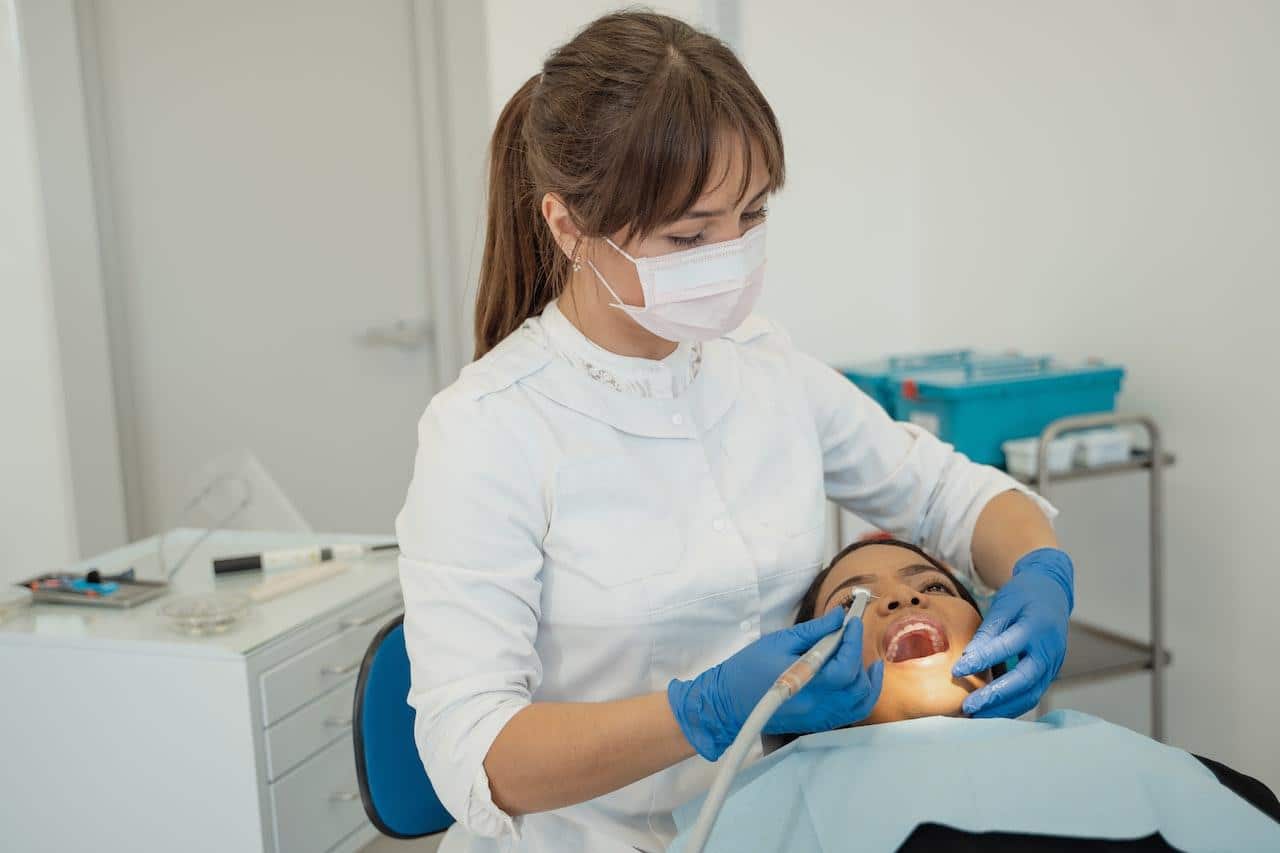
Professional cleaning is also essential for preventing gum disease since it helps eliminate the germs that can cause infection and inflammation. Cleaning your teeth improves not only your health but also your breath, your appearance, and your ability to spot any dental issues early on.
The Importance of Plaque and Tartar Removal
Plaque is a sticky layer that forms on the teeth due to the accumulation of bacteria. If not removed, it can harden into tartar (calculus), which cannot be eliminated by regular brushing and flossing alone. Utilizing specialized tools, a professional teeth cleaning lowers the risk of cavities and gum disease by removing plaque and tartar.
Prevention of Tooth Decay and Cavities
Regular professional teeth cleaning plays a crucial role in preventing tooth decay and cavities. Even with excellent oral hygiene, some mouth areas must be cleaned thoroughly.
Professional cleaning removes plaque and bacteria from these hard-to-reach areas, reducing the chances of decay and the need for fillings or more extensive dental work.
Gum Disease Prevention
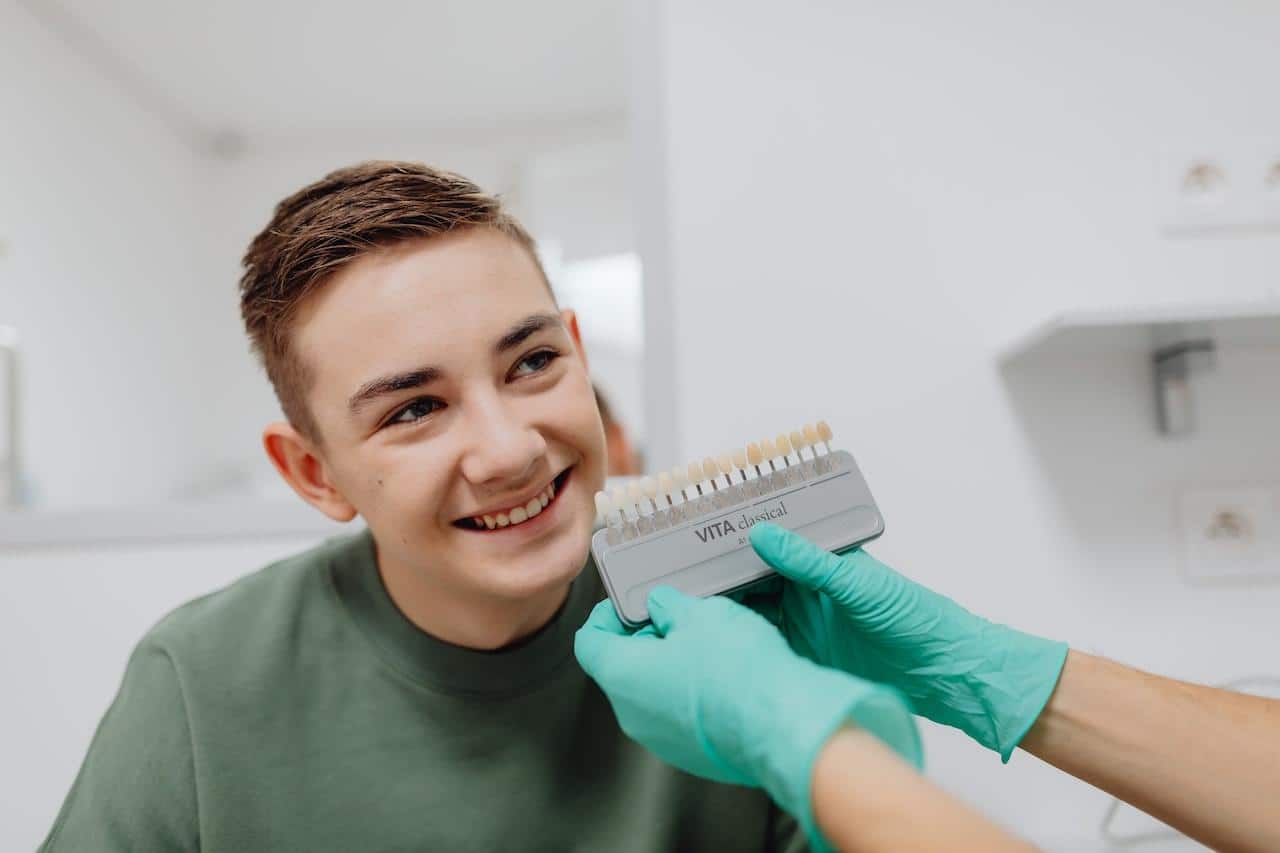
Periodontal disease, sometimes called gum disease, is a common ailment affecting the gums and tooth-supporting tissues. When plaque and tartar accumulate, it can cause gum inflammation (gingivitis), which, if ignored, can evolve into more severe stages of gum disease.
Professional teeth cleaning reduces the risk of gum disease and promotes healthier gums by removing plaque and tartar.
Fresh Breath and Improved Aesthetics
One of the noticeable benefits of professional teeth cleaning is fresher breath. Removing plaque and tartar helps eliminate bacteria that can contribute to bad breath. Additionally, teeth cleaning often involves polishing, which removes surface stains, resulting in a brighter and more aesthetically pleasing smile.
Early Detection of Dental Issues
Dental professionals thoroughly examine the mouth, teeth, and gums during professional teeth cleaning. Early detection of problems such as cavities, gum disease, or oral abnormalities can lead to more effective treatment and better outcomes.
Process of professional teeth cleaning.
The process of professional teeth cleaning typically involves several steps. It begins with an oral examination to assess the patient's overall dental health. Dental professionals check for signs of cavities, gum disease, and other oral issues.
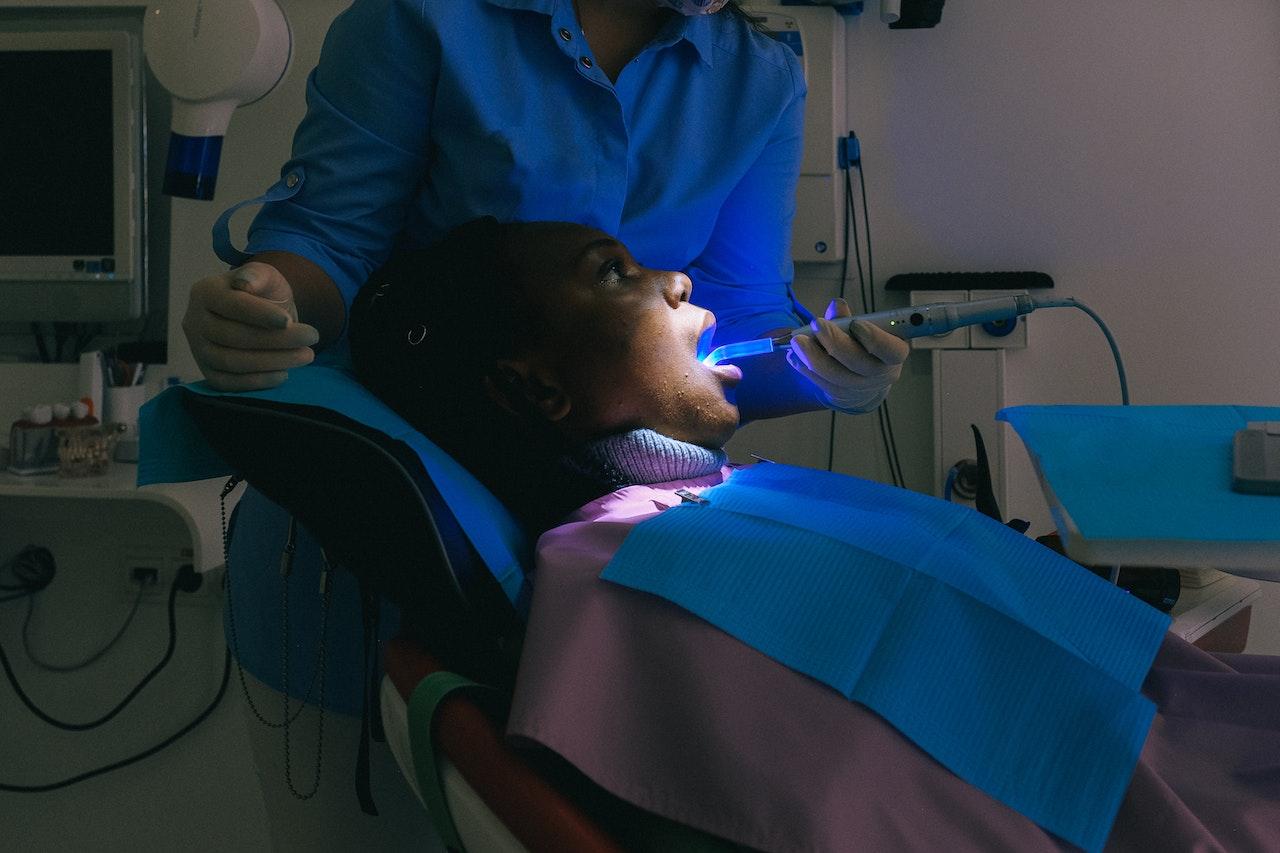
Next, they perform scaling to remove the plaque and tartar buildup on the teeth using specialized tools. This step is followed by polishing, smoothening the tooth surfaces, and removing stains. Depending on the patient's needs, fluoride treatment can strengthen the teeth and stop tooth decay.
Frequency and timing of professional teeth cleaning
The regularity of professional teeth cleaning is influenced by several variables, including an individual's oral health, dental history, and general risk factors. But it is advised that you should visit the dentist every six months for a professional cleaning.
However, people with particular regular dental issues, such as gum disease or a higher risk of cavities. You must speak with a dentist to identify the right timing and frequency of cleanings.
It's worth noting that even during pregnancy, professional teeth cleaning is safe and essential for maintaining oral health.
Preparation and aftercare
Following some preparation and aftercare tips is essential to make the most of your professional teeth cleaning. Before cleaning, brushing and flossing your teeth thoroughly to remove any loose debris is advisable.
During cleaning, you can expect your dental professional to use various tools and techniques, such as a scaler, to remove plaque and tartar carefully.
After the cleaning, it is up to you to maintain good oral hygiene at home, which can be summarized as regular brushing, flossing, and mouthwash.
If there are follow-up appointments, attend them as your dental professional recommends to ensure continued oral health.
Cost and insurance coverage
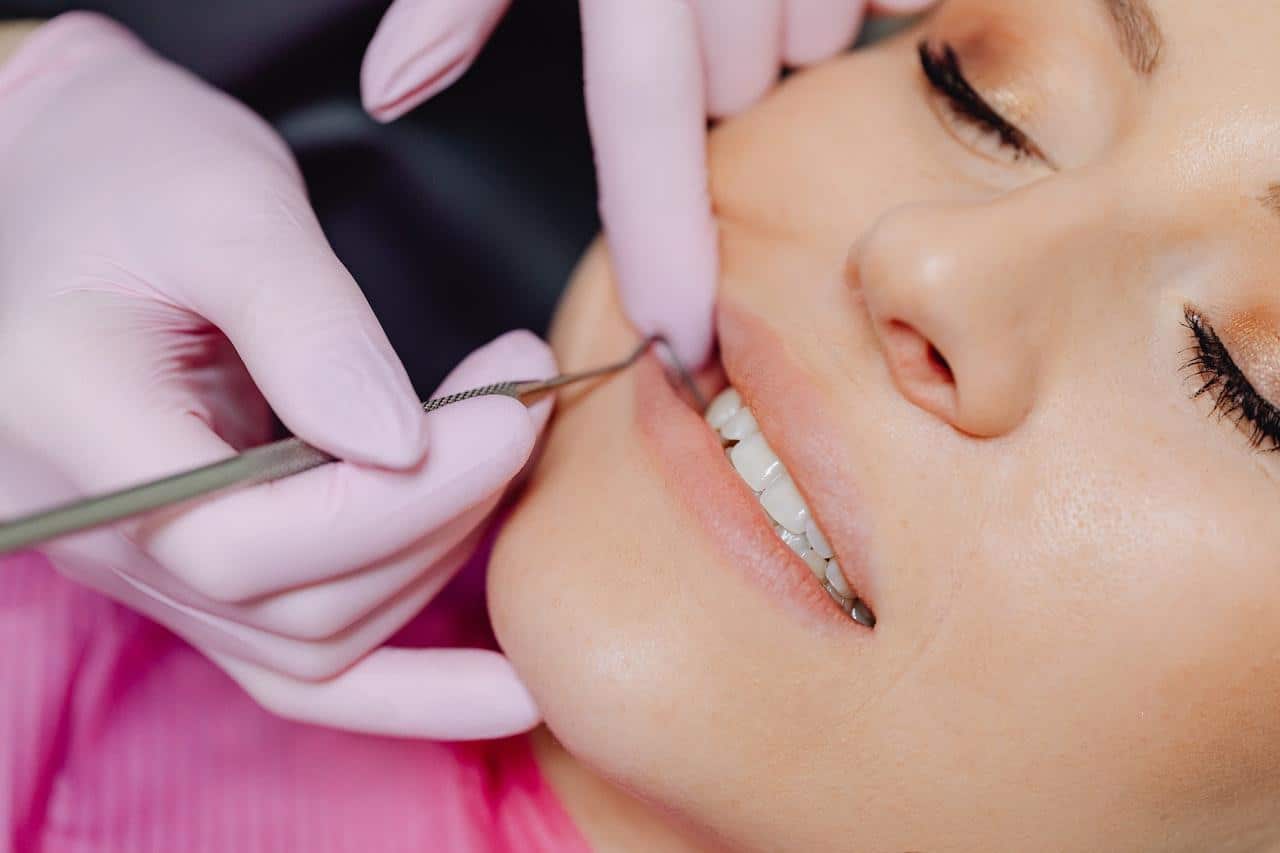
The cost of professional teeth cleaning may vary depending on location, dental clinic, and individual needs. The average cost ranges from $50 to $200 per cleaning session. Also, checking your coverage and taking advantage of potential discounts is recommended because many dental insurance policies include expert teeth cleaning.
For emergency dental care, consider RockWest Dental Clinic. They offer direct insurance billing, 10+ years of emergency dental care experience, and are open on weekends and evenings.
FAQs about professional teeth cleaning
Are professional teeth cleaning painful?
No, the procedure is generally painless, although some patients may experience mild discomfort or sensitivity.
Are there any risks or side effects?
Professional teeth cleaning is safe, but some patients may experience minor gum irritation or temporary tooth sensitivity.
Can children undergo professional teeth cleaning?
Yes, professional teeth cleaning is beneficial for children as well. It helps prevent cavities, promotes oral health, and establishes good dental habits early on.
What if a patient has dental anxiety?
Dental professionals understand dental anxiety and can provide options such as relaxation techniques, sedation, or distractions to help patients feel more comfortable during the cleaning process.
Conclusion
Always talk to your dentist about the best clean-up schedule depending on your oral health requirements. The above points will be a good foundation for implementing good oral habits.
To learn more about oral health, one component that is oven overlooked is choosing the right toothpaste is essential. Here is an excellent guide for you. Check out our article Mastering Minty Freshness: A Guide to Picking the Perfect Toothpaste, for helpful tips and insights on selecting the ideal toothpaste for your needs.

